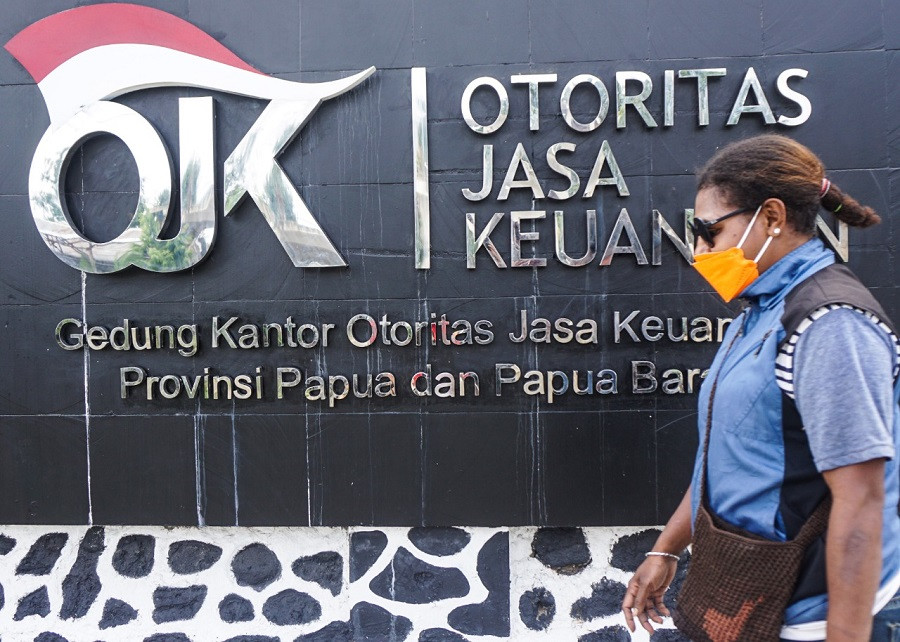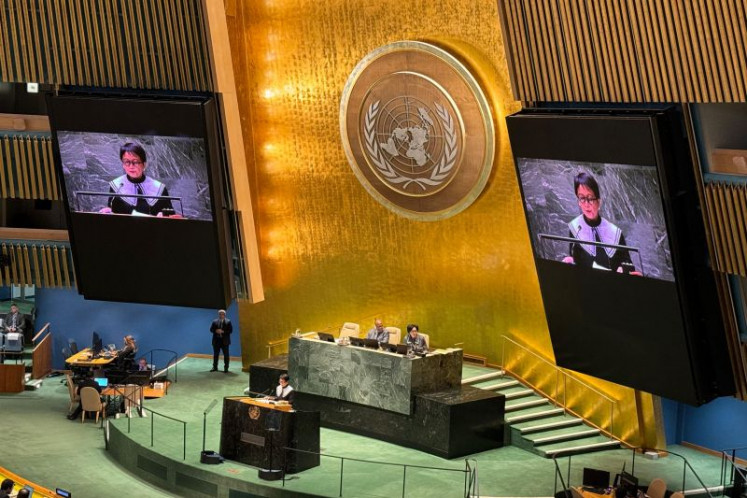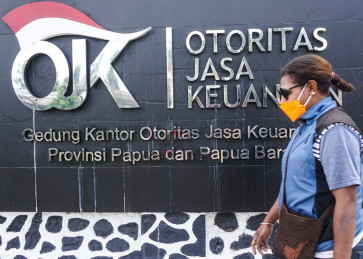The OJK's role in banking climate risk management
The OJK is taking a bottom-up approach in the initial phase of its climate risk stress test in line with its recently released climate risk management guidelines, but a concurrent top-down approach is also needed for an aggregate analysis of impacts beyond the banking industry.
Change Size
 A woman walks on Oct. 27, 2021 past the signage of the the Financial Services Authority (OJK) Papua and West Papua office in Jayapura, the provincial capital of Papua. (Antara/Indrayadi TH) (Antara/Indrayadi TH)
A woman walks on Oct. 27, 2021 past the signage of the the Financial Services Authority (OJK) Papua and West Papua office in Jayapura, the provincial capital of Papua. (Antara/Indrayadi TH) (Antara/Indrayadi TH)
Climate change casts a long shadow over operational activities across various industries, banking included.
For instance, climate-related risks can throw a wrench into borrowers' business operations, hindering their ability to meet their loan obligations and thereby directly affecting banks’ current profitability. Aggregately, such occurrences can influence the real economy, potentially impeding a nation’s overall economic growth.
However, banks confront formidable challenges in assessing the potential effects of climate-related risks on their operations and clientele.
One of these hurdles is the difficulty in analyzing the greenhouse gas (GHG) emissions of clients, attributable to bank's financial support of activities that produce such emissions. This predicament is compounded by the absence of historical data or definitive models to reliably forecast the impacts of climate-related risks.
Moreover, banking analysts have yet to adequately and comprehensively integrate existing climate risks into their considerations for providing funding. Undoubtedly, the primary reason for this is the banking sector's ongoing struggle to develop robust methodologies for integrating climate risk-related data with default prediction models and the level of losses banks incur.
The government, through the Financial Services Authority (OJK), has just released the Climate Risk Management & Scenario Analysis (CRMS), a set of guidelines tailored for the banking sector in responding to the ramifications of climate change. The OJK CRMS guidebook is deemed a dynamic, living document that is subject to ongoing refinement to harmonize with perpetually evolving best practices.
In its initial phase of implementation, the OJK has commenced a bottom-up climate risk stress test (CRST) involving 11 banks.

















